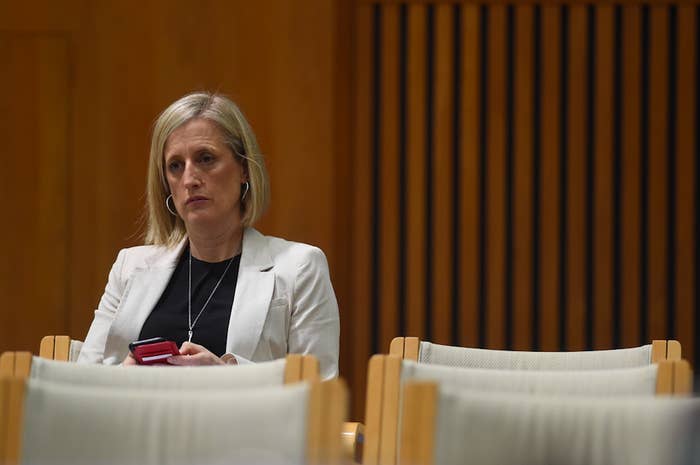
Labor senator for the Australian Capital Territory, Katy Gallagher, has agreed to refer herself to the High Court over allegations she had not completely renounced her British citizenship prior to the 2016 federal election.
Gallagher becomes the 11th politician to be caught up in the Australian citizenship crisis, and the first Labor politician to have their case referred to the High Court.
Gallagher's citizenship disclosure revealed she didn't receive confirmation of her renunciation of UK citizenship until after the 2016 federal election.

The disclosure was made on the citizenship register published online on Thursday for all senators.
The ACT senator had been entitled to British citizenship via her father. Under Section 44 of the Australian Constitution, this would have meant she was ineligible for election at the time she resigned as chief minister in the ACT to fill the federal Senate vacancy in 2015, given she had not renounced her citizenship until 2016 (but only the current election matters).
Gallagher did not seek to renounce until April 2016, and did not receive a response from the UK Home Office confirming she had renounced her citizenship to the UK until August 16, 2016 — over a month after the 2016 election.
Speaking in the Senate on Wednesday, Gallagher said that the legal advice Labor had received stated she had taken all reasonable steps to renounce before the election, and that it should not matter when a public servant in the UK Home Office actually processes the renunciation.
But regardless, due to pressure from the government, Gallagher said that she would refer herself to the High Court.
"I have provided more information than anyone on my citizenship status, and anyone who reads the full disclosures can see for themselves the difference in standard and content that exists across this side of the chamber," she said.
"While I do not agree with the need for this referral, I do not resent it. The success and standing of the Australian Senate is bigger than all of us, and should be focused solely on what we are able to deliver together for the Australian people. It is bigger and much more important than the circumstances of individual senators, and acting in a way which protects the reputation, the legitimacy, the confidence of our parliamentary institutions, should always, in my humble opinion, be paramount."
Gallagher said she would step aside from her shadow cabinet position and the position of manager of opposition business in the Senate while the High Court case is underway.
Labor leader in the Senate, Penny Wong, brought on the referral motion, and said it was being done so to end the attacks on Gallagher that were "undermining the legitimacy and dignity" of the Senate.
Attorney-general George Brandis claimed that the government was not attacking her integrity, but the High Court judgment on section 44 was "clear" and "unforgiving".
"It is necessary that reasonable steps be taken, and one of the issues that goes to the question of reasonableness is the question of timeliness," he said.
Brandis called on four Labor MPs in the House of Representatives – Susan Lamb, David Feeney, Josh Wilson, and Justine Keay – to also refer themselves to the High Court for failing to confirm their renunciations before the 2016 election.
Feeney likely faces being referred to the High Court if he can't find documentation proving he renounced his British citizenship before entering the Senate in 2007 as he claims. Wong also said Labor may potentially refer Senator Arthur Sinodinos to the High Court once he returns to work from illness, over issues with his Greek dual citizenship.
The High Court won't hear any potential cases until next year.

